Papijack vs. Bull-Boxer: Breed Differences and Similarities
Hypoallergenic
Are Papijacks or Bull-Boxers hypoallergenic, or neither?
Unfortunately, neither Papijack nor Bull-Boxer are hypoallergenic, which may not make them the best choice for dog lovers who suffer from pet allergies.
Temperament
What are the personalities of Papijack and Bull-Boxer dogs?
Stubborn
Independent
Happy
Energetic
Alert
Courageous
Intelligent
Friendly
Cheerful
Playful
Loving
Energetic
Courageous
Intelligent
Confident
Friendly
Loyal
Social
Sweet
Aggressive
Fearless
Brave
Bright
Shedding Level
Do Papijacks shed more than Bull-Boxers, or which breed sheds more, Papijacks or Bull-Boxers?
Papijack or Bull-Boxer dogs are not heavy shedders, but they will lose a significant amount of hair each year. To decrease the amount of shedding, you can regularly brush your Papijack or Bull-Boxer. This will remove loose hair and keep their coat growing in the same direction.
Watchdog Ability
Which dog breed makes a better watchdog, the Papijack or Bull-Boxer?
Papijacks aren't great guard dogs; they tend to just watch without taking action.
Avoid Bull-Boxers as watchdogs - they're not effective.
Ancestry
What are the origins of Papijack and Bull-Boxer breeds?
Papillon, Jack Russell Terrier
English Bulldog, Boxer
Date of Birth
When were Papijack and Bull-Boxer breeds first developed?
Unknown
Eye Color Possibilites
What are the eye colors of Papijack and Bull-Boxer dogs?
Brown
Brown
Nose Color Possibilites
What are the natural nose colors of Papijack and Bull-Boxer?
Black
Brown
Black
Coat Color Possibilites
What are the natural colors of the coat for Papijack and Bull-Boxer breeds?
Blue
Red
Brown
Fawn
Black
White
Brindle
White
Black
Fawn
Red
Brown
Coat Length
What is the typical coat length for Papijack and Bull-Boxer breeds?
Papijacks have medium-length coats.
Bull-Boxers have coats that can be either short or medium in length.
Coat Density
What is the density of the coat of Papijack and Bull-Boxer?
Coat Texture
What is the hair texture of Papijack and Bull-Boxer?
Straight
Litter Size
What is the usual litter size for Papijack and Bull-Boxer?
A Papijack can have a litter of 4-8 puppies on average. However, it's worth noting that the size of the litters can vary greatly. Factors that can influence litter size include the health of the mother, breeding history, and genetics.
A Bull-Boxer can have a litter of 2-10 puppies on average. However, it's worth noting that the size of the litters can vary greatly. Factors that can influence litter size include the health of the mother, breeding history, and genetics.
Adaptability
Papijack and Bull-Boxers are known for their adaptability and versatility. They are capable of adapting well to a wide range of lifestyle changes and living environments, making them great companions for families and individuals of all lifestyles.
Health Issues
Between Papijack and Bull-Boxer, which breed is more prone to health problems?
While the Papijack breed is generally healthy, occasional vet check-ups are still necessary to address any health concerns.
Bull-Boxers typically have low vet costs due to their good health, but it's important to monitor their health and seek vet care when necessary.
Major Concerns
What are the major health concerns for Papijack and Bull-Boxer breeds?
Legg-Calve-Perthes Disease
Bloat
Degenerative Myelopathy
Dilated Cardiomyopathy (DCM)
Dry Eye
Inflammatory Bowel Disease
Corneal Disease
Third Eye (Cherry Eye)
Minor Concerns
What minor health issues should be kept in mind when owning Papijack and Bull-Boxer?
Patellar Luxation
Pulmonic Stenosis
Allergies
Hip Dysplasia
Hypothyroidism
Obesity
vonWillebrand’s Disease
Occasional Tests
What occasional tests are recommended for Papijack and Bull-Boxer breeds?
X-Rays
MRI
CT Scan
Physical Examination
Ultrasound
Radiographs
Blood Count
Behavioural Analysis
Chemical Analysis
X-Rays
Eye Examination
Electrocardiogram
Complete Blood Count
Thyroid Panel
vonWillebrand’s Disease Test
Buccal Mucosal Bleeding Time (BMBT)
Skin Cytology Sample
Allergy Testing
Energy
How do the energy levels of Papijacks and Bull-Boxers compare?
Papijacks are suitable for those with a balanced lifestyle as they have an average energy level.
Bull-Boxers are a good choice for a low-key lifestyle due to their low energy levels.
Social Needs
Papijack vs Bull-Boxer social needs comparison
Papijack has above average social needs and thrives with interaction with humans and other dogs.
Bull-Boxer has very high social needs and requires regular mental and physical stimulation, a job or purpose, and companionship.
Exercise Needed
Papijack vs Bull-Boxer exercise need comparison.
Papijacks need moderate physical activity and are great for families and active individuals.
Bull-Boxers need only a small amount of physical activity, ideal for busy or elderly people or those with limited space.
Sleeping Need
Which of the two sleeps the most/least: Papijack or Bull-Boxer?
Papijacks sleep less than other breeds but still need adequate sleep for good health.
Bull-Boxers have moderate energy levels and typical sleep patterns of 12-14 hours per day.
Tendency to Bark
Do Papijacks or Bull-Boxers bark more/less frequently?
Papijack dogs are generally less vocal than other breeds and only bark when necessary, such as to alert their owner or communicate.
Bull-Boxers are typically quiet and only bark when needed, such as to alert their owner or when in distress.
Mouthiness
Mouthiness Comparison: Papijack vs Bull-Boxer?
Roaming urge
Papijack vs Labrador: Running away tendency?
Prey Drive
Papijack or Bull-Boxer - which breed has a higher level of prey drive?
Past times
What are some enjoyable activities and ways to keep Papijack and Bull-Boxer entertained?
Walking, Hiking, Soccer, Dog Parks, Hiding treats, Fetch, Puzzle Toys, Tug-of-war, Run, Walk, Play, Cuddle, Car rides, Feeding time, Nap time, Running, Toys, Chase, Cuddling, Rat catching, Play keep away, Hide & Seek, Sleeping
Walking, Fetch, Camping, Jogging, Play, Cuddl, Hike, Training, Walk, Running, Chewing on bone
Activity Level
Which breed has higher energy, Papijacks or Bull-Boxers?
Papijack and Bull-Boxer are high-energy dogs that require a lot of mental and physical exercise. Without proper stimulation and attention, these breeds can become problematic. If you're considering these breeds, be prepared to invest time and effort in their exercise and training.
Tolerance of being left alone
Walks per Week
How many miles should Papijack or Bull-Boxer walk each week?
There's really no limit to how far you walk your dog as long as they're comfortable. For Papijack, it's at least 7 miles / week. Just remember to build distance and stamina gradually over time.
There's really no limit to how far you walk your dog as long as they're comfortable. For Bull-Boxer, it's at least 9 miles / week. Just remember to build distance and stamina gradually over time.
Activity per Day
Do Papijacks or Bull-Boxers require more exercise?
Both Papijack and Bull-Boxer typically require a minimum of 60 minutes of exercise each day. The exercise can be spread throughout the day and may involve high-energy activities like walking, running, and playing.
Grooming
Which breed is easier to maintain in terms of grooming, Papijacks or Bull-Boxers?
The Papijack requires an average amount of grooming compared to other breeds.
The Bull-Boxer has low grooming needs and is easy to maintain.
Brushing Frequency
What is the recommended brushing frequency for Papijack and Bull-Boxer dogs?
Papijack and Bull-Boxer should be brushed at least once a week. Of course, you can give them more frequent brushes if you find that they are still shedding a lot.
Brushing Tools
What brushing tools are used for Papijacks and Bull-Boxers?
Pin Brush
Comb
Scissors
Nail Clipper
Slicker Brush
Comb
Nail Clipper
Cups
How much food should be given to Papijack or Bull-Boxer in cups?
For an average 8-18 pound (4 - 8 kg) Papijack feed 1 cups daily. But, keep in mind, the amount you feed is going to be dependent on the quality of the food you are feeding.
For an average 50-80 pound (23 - 36 kg) Bull-Boxer feed 3 cups daily. But, keep in mind, the amount you feed is going to be dependent on the quality of the food you are feeding.
Daily Cost
Which breed has a higher daily cost, Papijack or Bull-Boxer?
The average cost of a Papijack is somewhere $1.40 - $1.40 per day.
The average cost of a Bull-Boxer is somewhere $2.10 - $2.70 per day.
Monthly Cost
Which breed has a higher monthly cost, Papijack or Bull-Boxer?
The average per month expenses of a Papijack is between $35 - $42. This makes an average of $420 - $504 per year. It will be on the higher side when the dog is still small because it will need more frequent visits to the vet, shots.
The average per month expenses of a Bull-Boxer is between $55 - $73. This makes an average of $660 - $876 per year. It will be on the higher side when the dog is still small because it will need more frequent visits to the vet, shots.
Intelligence
Comparing Intelligence: Papijacks vs Bull-Boxers
Papijack is a very intelligent and trainable breed.
Bull-Boxer has below average obedience intelligence, but they excel in understanding human emotions.
Sensitivity Level
How do Papijack and Bull-Boxer compare in sensitivity?
These breeds are more sensitive than others and easily overwhelmed by new surroundings and people. Papijack and Bull-Boxer need gentle handling and a calm, stable home environment with positive reinforcement training.
Affection Dependance
Which is the more affectionate dog breed: Papijack vs Bull-Boxer?
Apartment Friendly
Which breed is more apartment-friendly: Papijack or Bull-Boxer?
Papijacks can do well in apartments with enough exercise and time outside, but a small yard would be ideal.
Bull-Boxers make excellent apartment dogs, being fairly active indoors and not requiring a yard.
Child Friendly
Do Papijacks or Bull-Boxers have a friendlier temperament towards children?
Papijacks are good with kids if socialized and trained from a young age.
Bull-Boxers make excellent family pets for kids due to their gentle, protective nature and calm temperament.
Senior-friendly
Which dog is more suitable as a pet for the elderly - Papijack or Bull-Boxer?
Cat Friendly
Do Papijack or Bull-Boxer breeds have a better compatibility with cats?
Papijacks and Bull-Boxers are one of the best dogs for cats. They accept cats readily as part of the family. However, this dog breed should be trained to not chase after the kitty early on
Dog Friendly
Which breed is more sociable with other dogs: Papijack or Bull-Boxer?
Papijacks are average in their friendliness towards other dogs, and socialization can help.
Bull-Boxers are friendly and active companions, and can be good family pets, though their friendliness towards other dogs may vary.
Pet friendly
How do Papijack or Bull-Boxer dogs interact with other pets?
Stranger Friendly
Which breed is more friendly with strangers: Papijack or Bull-Boxer?
Papijack and Bull-Boxer are friendly dogs and typically won't bark at strangers. However, if you wish to change this behavior, training them is easy thanks to their intelligence, making it pretty simple to teach them anything.
Playfulness
Which breed is more playful between Papijack and Bull-Boxer?
Papijacks are very playful, so adopting an older one might be a better option for a more relaxed experience.
Bull-Boxers have an average level of playfulness, enjoying playtime like most dogs but not excessively so.
Trainability
How do the trainability levels of Papijacks and Bull-Boxers compare?
Papijacks are popular for their ease of training and quick learning ability.
Bull-Boxers are usually easy to train but require consistency to fully obey commands.
Compare Papijack with other breeds

Standard Irish Wolf Schnauzer
Papijack vs Standard Irish Wolf Schnauzer

Cairnwich Terrier
Papijack vs Cairnwich Terrier

Doxie-Pin
Papijack vs Doxie-Pin
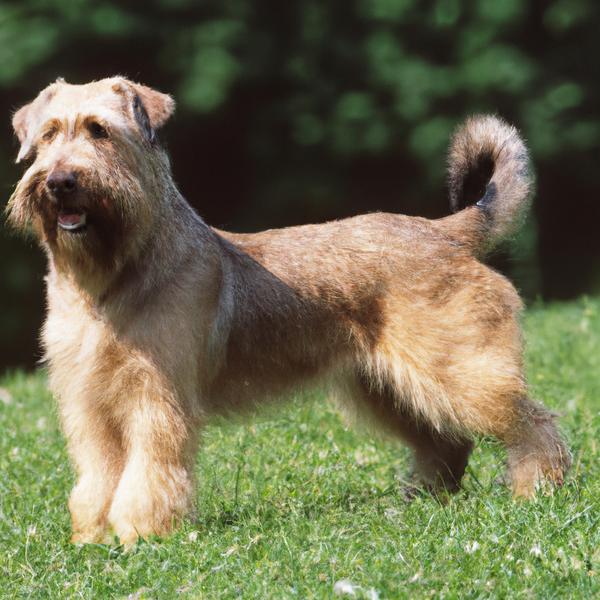
Glen of Imaal Terrier
Papijack vs Glen of Imaal Terrier

Akita Shepherd
Papijack vs Akita Shepherd

Yorkie Pin
Papijack vs Yorkie Pin
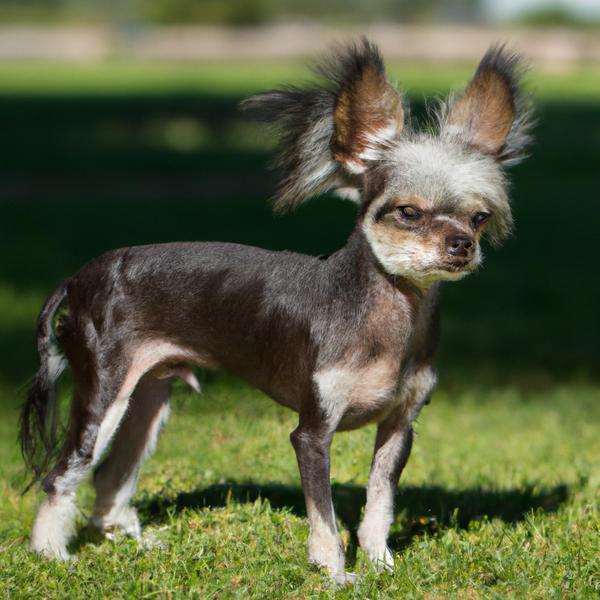
Chin Crested
Papijack vs Chin Crested
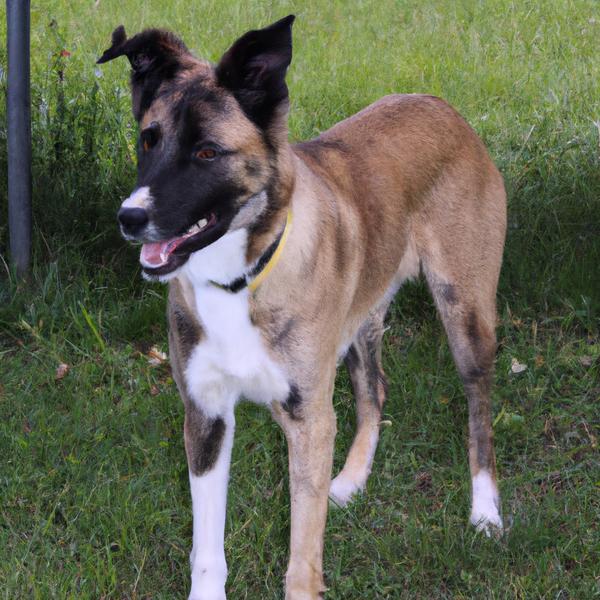
Cherokee Monarch
Papijack vs Cherokee Monarch

Greyhound
Papijack vs Greyhound

Beagle Pit
Papijack vs Beagle Pit
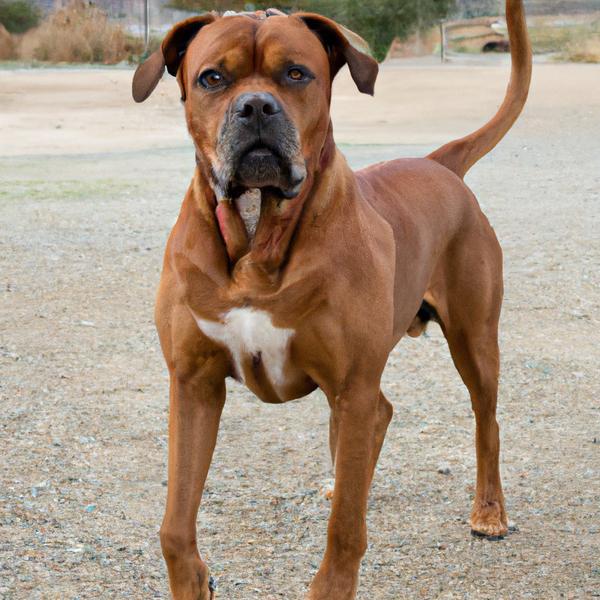
Boxador
Papijack vs Boxador
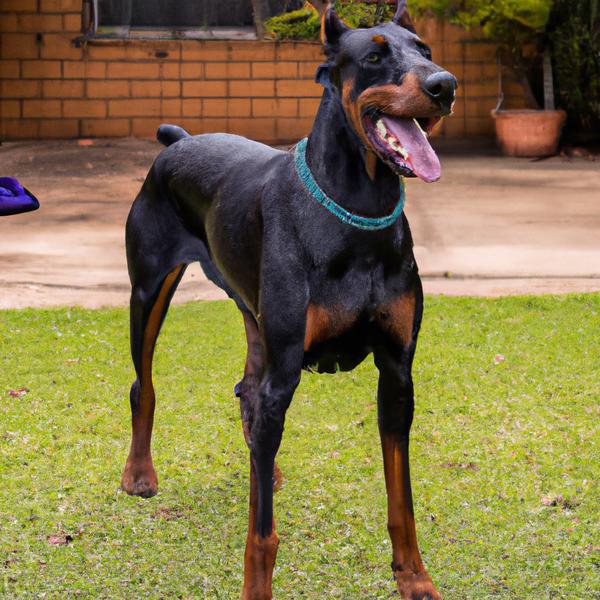
Doberman Pit
Papijack vs Doberman Pit

